|
The American Catholic Hymnbook includes numerous contemporary songs, which other publishers have made available to us. For example, we provide songs by Bob Dufford, David Haas, Marty Haugen, and Michael Joncas. These are the most popular songs from these composers; they seem to stand the test of time. On the other hand, American Catholic Press also provides much new material, including original hymns and metrical Psalms. In the case of older melodies, e.g. by Handel or Mozart, we provide new arrangements and new texts, as well as choral settings.
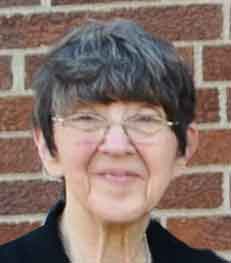 Jeanette Dandurand is the music director at St. Stanislaus Church in Posen, Illinois. She directs several choirs, including a Polish-language choir. Currently, she teaches music in the St. George grade school, in Tinley Park. She did much careful work editing the 1987 Leaflet Missal Keyboard Accompaniment Book, the 1990 Psalter, and Singing the Psalms, published that same year. She also provided settings of several familiar Polish hymns for the 1992 edition of the American Catholic Hymnbook. See, for example, God's Word, Holy Father, Light of Light, Lord, I Will Live For You, Reign and Rule, and Praise God for Mary. Jeanette Dandurand is the music director at St. Stanislaus Church in Posen, Illinois. She directs several choirs, including a Polish-language choir. Currently, she teaches music in the St. George grade school, in Tinley Park. She did much careful work editing the 1987 Leaflet Missal Keyboard Accompaniment Book, the 1990 Psalter, and Singing the Psalms, published that same year. She also provided settings of several familiar Polish hymns for the 1992 edition of the American Catholic Hymnbook. See, for example, God's Word, Holy Father, Light of Light, Lord, I Will Live For You, Reign and Rule, and Praise God for Mary.
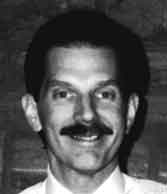 Mark Downey is the former music director of the Roman Catholic Diocese of Joliet, Illinois. For some years now, he has been music director at Holy Family Church in Park Forest, Illinois. He was also choir director and music instructor at Thornridge High School in Harvey, Illinois. Mark Downey holds a master's degree in music from Roosevelt University in Chicago. He also studied choral conducting at the Royal School of Church Music in London. His arrangements published by ACP include I Lift My Soul and Sunday Morning. Mark Downey is the former music director of the Roman Catholic Diocese of Joliet, Illinois. For some years now, he has been music director at Holy Family Church in Park Forest, Illinois. He was also choir director and music instructor at Thornridge High School in Harvey, Illinois. Mark Downey holds a master's degree in music from Roosevelt University in Chicago. He also studied choral conducting at the Royal School of Church Music in London. His arrangements published by ACP include I Lift My Soul and Sunday Morning.
Mimi Fariña, whose first name was Margarita, was a singer-songwriter and social activist. Her parents were a Scottish mother and a Mexican-American physicist; her older sister was Joan Baez. 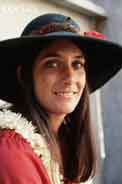 She married Richard Farina at the age of eighteen, in Paris. They produced several albums of folk songs. After Richard's death on her 21st birthday, she married Milvan Melvin but retained the name of her first husband. In 1974, she founded a non-profit organization, Bread and Roses; its purpose was to bring music to jails and other institutions. Soon, the organization was producing as many as 500 shows per year. The name of the organization comes from a 1911 poem by James Oppenheim; the poem was associated with a 1912 workers' strike in Lawerence, Massachusetts. She married Richard Farina at the age of eighteen, in Paris. They produced several albums of folk songs. After Richard's death on her 21st birthday, she married Milvan Melvin but retained the name of her first husband. In 1974, she founded a non-profit organization, Bread and Roses; its purpose was to bring music to jails and other institutions. Soon, the organization was producing as many as 500 shows per year. The name of the organization comes from a 1911 poem by James Oppenheim; the poem was associated with a 1912 workers' strike in Lawerence, Massachusetts.
Here is the original poem, set to Mimi's music in 1974. Joan Baez, Judy Collins, John Denver, and others made this setting well known.
As we come marching, marching in the beauty of the day,
A million darkened kitchens, a thousand mill lofts gray,
Are touched with all the radiance that a sudden sun discloses,
For the people hear us singing: "Bread and Roses! Bread and Roses!"
As we come marching, marching, we battle too for men,
For they are women's children, and we mother them again.
Our lives shall not be sweated from birth until life closes;
Hearts starve as well as bodies; give us bread but give us roses.
As we come marching, marching, unnumbered women dead
Go crying through our singing their ancient cry for bread.
Small art and love and beauty their drudging spirits knew.
Yes, it is bread we fight for--but we fight for roses, too!
As we come marching, marching, we bring the greater days.
The rising of the women means the rising of the race.
No more the drudge and idler--ten that toil where one reposes
But a sharing of life's glories: Bread and roses! Bread and roses!
Mimi's contribution to ACP Publications is the melody of this stirring poem for women's rights and full equality. The American Catholic Hymnbook provides a new text, with the same sentiments, in a hymn that is fully appropriate for the liturgy. The ACP version is truly a prayer, with this refrain:
God, grant us joy and justice from our birth until life closes.
With men and women equal, give us bread and give us roses.
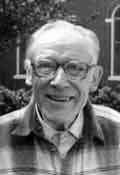 Father Joseph Gelineau, S.J. was born in the village of Champ-sur-Layon in France. As a boy, afflicted with tuberculosis, he was out of school for an extended time. To strengthen his lungs, he took up horn-playing. As a young Jesuit, he studied composition and organ at the École César-Frank in Paris. He obtained a doctorate in theology, with a dissertation on psalmody in the Syrian Church in the 4th-5th centuries. Throughout his life, he was influenced by Gregorian Chant. Father Aimé-Georges Martimort encouraged Gelineau to study how to sing Psalms in French. So, he came to work on the Psalm translations of the Jerusalem Bible. The complete Psalter of Gelineau and his colleagues was first published in 1955, in French. The English-language version was published in 1963, edited by two Dutch Cistercians, Hubert Richards, and A. Gregory Murray, O.S.B. The first Psalm setting that Gelineau wrote was that of Psalm 23, in English, "My Shepherd is the Lord." Gelineau's musical settings of the Psalms are still sung all over the world. He also wrote many church songs, hymn collections for the Divine Office, and a score of settings of the Mass. He also wrote for the monastery of Taizé. Gelineau was not only a skilled composer; he was also a scholar of the liturgy. His 1964 Voices and Instruments prepared the way for the restoration of the Responsorial Psalm in the Roman Catholic Lectionary. He wrote extensively for Église qui chante (which he helped found) and La Maison-Dieu, as well as other publications. Gelineau himself was responsible for the introduction of the memorial acclamation in the Eucharistic Prayer. Other publications available in English, for example, are Pastoral Liturgy: A Symposium and The Liturgy Today and Tomorrow. For 25 years, he lectured at the Institut Catholique in Paris. His last years were spent in parish work, first at St. Ignatius church in Paris, then in a cluster of communities in Écuelles. He also arranged Hosanna, an antiphon for Palm Sunday. Father Joseph Gelineau, S.J. was born in the village of Champ-sur-Layon in France. As a boy, afflicted with tuberculosis, he was out of school for an extended time. To strengthen his lungs, he took up horn-playing. As a young Jesuit, he studied composition and organ at the École César-Frank in Paris. He obtained a doctorate in theology, with a dissertation on psalmody in the Syrian Church in the 4th-5th centuries. Throughout his life, he was influenced by Gregorian Chant. Father Aimé-Georges Martimort encouraged Gelineau to study how to sing Psalms in French. So, he came to work on the Psalm translations of the Jerusalem Bible. The complete Psalter of Gelineau and his colleagues was first published in 1955, in French. The English-language version was published in 1963, edited by two Dutch Cistercians, Hubert Richards, and A. Gregory Murray, O.S.B. The first Psalm setting that Gelineau wrote was that of Psalm 23, in English, "My Shepherd is the Lord." Gelineau's musical settings of the Psalms are still sung all over the world. He also wrote many church songs, hymn collections for the Divine Office, and a score of settings of the Mass. He also wrote for the monastery of Taizé. Gelineau was not only a skilled composer; he was also a scholar of the liturgy. His 1964 Voices and Instruments prepared the way for the restoration of the Responsorial Psalm in the Roman Catholic Lectionary. He wrote extensively for Église qui chante (which he helped found) and La Maison-Dieu, as well as other publications. Gelineau himself was responsible for the introduction of the memorial acclamation in the Eucharistic Prayer. Other publications available in English, for example, are Pastoral Liturgy: A Symposium and The Liturgy Today and Tomorrow. For 25 years, he lectured at the Institut Catholique in Paris. His last years were spent in parish work, first at St. Ignatius church in Paris, then in a cluster of communities in Écuelles. He also arranged Hosanna, an antiphon for Palm Sunday.
The American Catholic Hymnbook and the Leaflet Missal prayerbook both include the Mass of Celebration by Gelineau. The Kyrie is in the original Greek; the rest of the setting is in English.
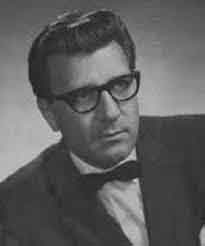 Noel Goemanne ("goomahn") for many years was organist and choirmaster at Christ the King Church in Dallas, Texas. He is a graduate of the Lemmens Institute of Belgium, where he received the diploma of Laureate. He pursued post-graduate study of organ and improvisation with the celebrated composer Flor Peeters; he also studied at the Royal Conservatory of Liége. Noel Goemanne ("goomahn") for many years was organist and choirmaster at Christ the King Church in Dallas, Texas. He is a graduate of the Lemmens Institute of Belgium, where he received the diploma of Laureate. He pursued post-graduate study of organ and improvisation with the celebrated composer Flor Peeters; he also studied at the Royal Conservatory of Liége.
Professional recognition came when the Belgian National Radio Network in Namur engaged him as a regular piano recitalist. Since then, he has appeared as recitalist and guest conductor in North America, Europe, and Asis. Outstanding choirs and organists throughout the world have performed his works. His many sacred and secular compositions appear in the catalogs of numerous publishers. He is a member of ASCAP, AGO, ACDA, and NPM. The Manila Institute of Sacred Music, in the Philippines presented him with an award for his contributions to church music. Pope Paul VI awarded him the Pro Ecclesia medal. He also received the degree of doctor of sacred music, honoris causa, from St. Joseph's College, Rensselaer, Indiana.
Goemanne's many contributions to the American Catholic Press repertory include settings of Psalm refrains, accompaniments to many hymns, and the Mass for Peace and Justice. Goemanne also contributed melody and arrangement for As Incense, Burning, an antiphon for the Evening Psalm at Vespers. He also arranged Here 'Round Your Altar and Taste and Touch the Lord.
George Frideric Handel was born in Halle, Germany, in 1685. He is regarded as one of the finest composers of his own era and perhaps of any era. As a truly international musician, he was able to dominate the musical scene, in the idiom of Germany, France, Italy, and England. 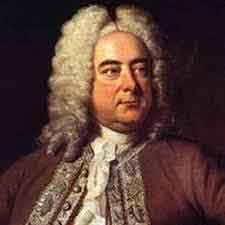 Of Handel's contemporaries, only Johann Sebastian Bach might be considered his peer. Of Handel's contemporaries, only Johann Sebastian Bach might be considered his peer.
Handel studied under Friedrich Wilhelm Zachau at the Liebfrauenkirche in Halle from 1693-1696. After a visit to Berlin, he became organist at the Halle cathedral in 1697. At the age of twenty-one, he left for Italy. Handel then spent four years working with the leading Italian musicians of his time, mastering the Italian style of singing that would later come to be thought of as his own. His arrival in England in 1712 marked the beginning of a long and prosperous career.
Handel's works amount to ninety-seven volumes of music. His Messiah, an oratorio first performed in 1742 in Dublin, Ireland, became loved worldwide and is perhaps his most celebrated work. Upon Handel's death in 1759, he was buried with public acclaim at Westminster Abbey in London, England.
In the American Catholic Hymnbook and the ACP Leaflet Missal prayerbook, there are several tunes by Handel. Among these are He Is Coming, Praise God in Glory, and Sunday Morning. ACP publishes the latter in octavo format, with parts for organ, trumpets, and French horn, as well as a soprano descant. This octavo is our most popular choral publication. Mark Downey's arrangement is excellent. Sunday Morning is also available from ACP on a cassette, River of Glory. The wonderfully triumphant character of the tune and arrangement makes Sunday Morning a delight for any choir. The melody of this hymn is a minuet, from the last movement of the Music for the Royal Fireworks.
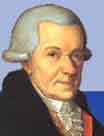 John Michael Haydn (1737-1806) was an Austrian composer of the classical period; he was the younger brother of Joseph Haydn, often referred to by the name "Michael." In childhood, he excelled as a boy soprano. He was Kapellmeister in Salzburg for 43 years; during that time he wrote over 360 compositions. Mozart said that he respected Haydn's work highly. His brother Joseph said that Michael's religious compositions were superior to his own. Most scholars consider Haydn's choral settings as his best works. These include a Requiem Mass in C minor, which influenced Mozart's Requiem. Haydn also wrote the Missa Hispanica and the
St. Francis Mass in D minor, and a set of graduals. His secular compositions include forty symphonies and wind partitas. John Michael Haydn (1737-1806) was an Austrian composer of the classical period; he was the younger brother of Joseph Haydn, often referred to by the name "Michael." In childhood, he excelled as a boy soprano. He was Kapellmeister in Salzburg for 43 years; during that time he wrote over 360 compositions. Mozart said that he respected Haydn's work highly. His brother Joseph said that Michael's religious compositions were superior to his own. Most scholars consider Haydn's choral settings as his best works. These include a Requiem Mass in C minor, which influenced Mozart's Requiem. Haydn also wrote the Missa Hispanica and the
St. Francis Mass in D minor, and a set of graduals. His secular compositions include forty symphonies and wind partitas.
In the American Catholic Hymnbook, two hymns originate with Haydn: Great God, We Give You Glory and When Morning Fills the Skies.
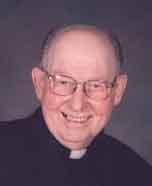 Father Lawrence Heiman, C.PP.S., taught at St. Joseph's College, Rensselaer, Indiana, for 58 years. He directed theatrical productions, choir, band, and the glee club. He had a licenciate and a master's degree in Gregorian Chant, as well as a doctorate in sacred music from the Pontifical Institute in Rome. He was one of the founding fathers of the National Association of Pastoral Musicians, the Church Music Association of America, and the Composers' Forum for Catholic Music. In 1960 he founded the Rensselaer Program of Church Music and Liturgy, which he directed for 35 summers. In 1998 he began the summer Gregorian Chant Institute. Father Lawrence Heiman, C.PP.S., taught at St. Joseph's College, Rensselaer, Indiana, for 58 years. He directed theatrical productions, choir, band, and the glee club. He had a licenciate and a master's degree in Gregorian Chant, as well as a doctorate in sacred music from the Pontifical Institute in Rome. He was one of the founding fathers of the National Association of Pastoral Musicians, the Church Music Association of America, and the Composers' Forum for Catholic Music. In 1960 he founded the Rensselaer Program of Church Music and Liturgy, which he directed for 35 summers. In 1998 he began the summer Gregorian Chant Institute.
For American Catholic Press, Father Heiman contributed the melody and arrangement for This Bond of Blood, a hymn by Daniel H. Graham. This hymn reflects the spirituality of his religious order, the Society of the Precious Blood. Father Heiman also contributed considerable consultation on the ACP Psalter.
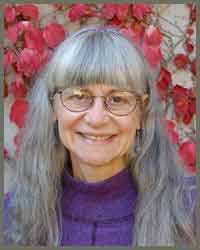 Pat Uhl Howard was born in Washington, D.C., the eldest of five daughters. A few years later, the family moved to Cincinnati, Ohio. Pat studied at Grailville Community College, Loveland, Ohio. She then moved to Canada, to study at the University of Toronto. Afterwards, in Saskatchewan, she was involved in community organizing with the local Federation of Indians and the Metis. At the University, she earned her B.A. and M.A. in political science. She married Roger Howard and was an exchange student in China. Pat Uhl Howard was born in Washington, D.C., the eldest of five daughters. A few years later, the family moved to Cincinnati, Ohio. Pat studied at Grailville Community College, Loveland, Ohio. She then moved to Canada, to study at the University of Toronto. Afterwards, in Saskatchewan, she was involved in community organizing with the local Federation of Indians and the Metis. At the University, she earned her B.A. and M.A. in political science. She married Roger Howard and was an exchange student in China. 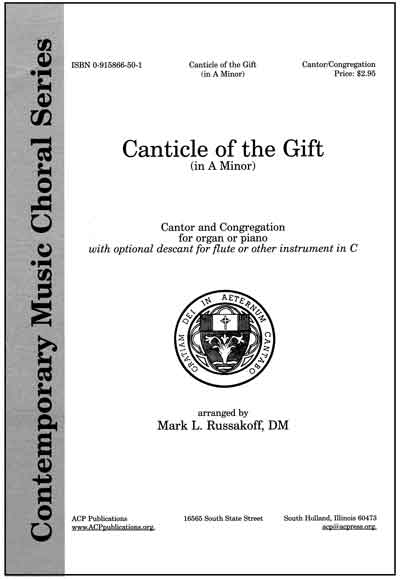 They studied Chinese and philosophy in Beijing. She taught English in Guanzhou and social sciences in inner Mongolia. During this time, she researched her Ph.D. dissertation on communication in China's countryside. She earned her doctorate from Simon Fraser University, Vancouver. She has been a professor of communication there since 1990. They studied Chinese and philosophy in Beijing. She taught English in Guanzhou and social sciences in inner Mongolia. During this time, she researched her Ph.D. dissertation on communication in China's countryside. She earned her doctorate from Simon Fraser University, Vancouver. She has been a professor of communication there since 1990.
Currently, she lives in Vancouver, Canada. Pat is the composer of three songs sung worldwide: Bless the Lord [also known as the Song of Daniel], Come, Let Us Worship [a setting of Psalm 95], and Canticle of the Gift [also known by the first line of its refrain, O What a Gift]. This latter song has appeared in countless hymnals, from Australia to Latvia, was translated into many languages, and is still sung with vigor in the present generation. These songs were published in The Johannine Hymnal back in the 1960's and 1970's; they are available today in the American Catholic Hymnbook.
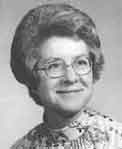 Sister Theophane Hytrek, SSSF, for many years was a music professor at Alverno College, Milwaukee, Wisconsin. She was born in Stuart, Nebraska. After her reception into her religious community, she studied composition and organ performance. She was an internationally renowned recitalist and composer. Sister Theophane was actively involved in the National Catholic Music Educators Association (NCMEA) and other professional organizations. With a major in composition, her doctorate was was from the Eastman School of Music. Sister Theophane Hytrek, SSSF, for many years was a music professor at Alverno College, Milwaukee, Wisconsin. She was born in Stuart, Nebraska. After her reception into her religious community, she studied composition and organ performance. She was an internationally renowned recitalist and composer. Sister Theophane was actively involved in the National Catholic Music Educators Association (NCMEA) and other professional organizations. With a major in composition, her doctorate was was from the Eastman School of Music.
Her community, the School Sisters of St. Francis, had a predominantly German heritage, with a rich tradition of music and congregational singing. They were founded in New Cassel, Wisconsin. Today, the mission of this congregation covers the United States, Europe, Latin America, and India.
For American Catholic Press, Sister Theophane contributed numerous organ settings for hymns and metrical Psalms. The American Catholic Hymnbook features acclamations for Eucharistic Prayers for Childrens' Masses; these are her compositions.
Jim Gyoon Kim is a Korean hymn-writer. In the American Catholic Hymnbook, his text is translated by Chiyoon Chung. The music is the Korean traditional tune, Chooay Pakscong; this tune is familiar to many in the strong, Korean Catholic community.
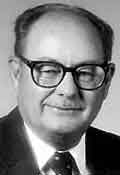 Robert Kreutz was an engineer by trade and educational background. Yet he was also one of the most gifted
arrangers and composers in the Roman Catholic Church in the U.S. in the twentieth century. He studied organ under the highly respected Dr. Eigenschenck of the Chicago Conservatory. He studied composition under Leo Sowerby of the American Conservatory in Chicago. He also studied under Arnold Schoenberg [at UCLA] and Normand Lockwood [at the University of Denver]. He holds an M.A. in composition from the University of Denver. On a national level, Robert Kreutz is the recipient of numerous awards and commissions. He did many works for the Church, both arrangements and original compositions. In 1987, his opera Francesco, on the life of St. Francis, made its premiere. He was blest with a genuine gift for beautiful melodic composition, sound voice leading, and masterful arrangements. Above all, his settings are marked by an exquisitive sensitivity to the natural rhythm and accent of the text itself. Perhaps his most well known song is Gift of Finest Wheat, first performed at a Eucharistic Congress in Philadelphia, Pennsylvania. Other noteworthy compositions of his include Father, Make Us One, and We Are The Vineyard. He also arranged such songs as How Holy the Banquet, Just as the Grain, and We Will Bring You Honor. Kreutz also contributed the melody and arrangement for the Sanctus and Agnus Dei from his Mass of Praise. Robert Kreutz was an engineer by trade and educational background. Yet he was also one of the most gifted
arrangers and composers in the Roman Catholic Church in the U.S. in the twentieth century. He studied organ under the highly respected Dr. Eigenschenck of the Chicago Conservatory. He studied composition under Leo Sowerby of the American Conservatory in Chicago. He also studied under Arnold Schoenberg [at UCLA] and Normand Lockwood [at the University of Denver]. He holds an M.A. in composition from the University of Denver. On a national level, Robert Kreutz is the recipient of numerous awards and commissions. He did many works for the Church, both arrangements and original compositions. In 1987, his opera Francesco, on the life of St. Francis, made its premiere. He was blest with a genuine gift for beautiful melodic composition, sound voice leading, and masterful arrangements. Above all, his settings are marked by an exquisitive sensitivity to the natural rhythm and accent of the text itself. Perhaps his most well known song is Gift of Finest Wheat, first performed at a Eucharistic Congress in Philadelphia, Pennsylvania. Other noteworthy compositions of his include Father, Make Us One, and We Are The Vineyard. He also arranged such songs as How Holy the Banquet, Just as the Grain, and We Will Bring You Honor. Kreutz also contributed the melody and arrangement for the Sanctus and Agnus Dei from his Mass of Praise.
Msgr. Joseph Kush was ordained for the Chicago Diocese in 1934. The year later, he began study in Rome at the Pontifical Institute; during the summer, he engaged in further study at Salzburg and Solemnes. He graduated three years later, with master's degrees in both composition and Gregorian Chant. At the faculty of St. Mary of the Lake Seminary in Mundelein, he replaced Otto Singenberger as director of music. He continued in this position for eighteen years, with special emphasis on Gregorian Chant. He also directed the choir in the Roman settings of Msgr. Raffaello of the Basilica of St. John Lateran, as well as the rich polyphony of Renaissance Rome. For the annual Byzantine Liturgy, he had the choir sing in four parts, in Church Slavonic. He also edited a hymnal specifically for use in the main chapel. During these years, he also taught music at DePaul University and at Mundelein College. From 1956 to 1972, he served as pastor of St. Barbara parish in Brookfield, Illinois. He was a highly competent organist and an expert director of Gregorian Chant. His final assignment was chaplain of St. Mary of Providence Girls' School in Chicago; he died in 1991.
His contribution to ACP is his metrical setting of the Our Father, published in the American Catholic Hymnbook.
Carey Landry is among the most well known composers of contemporary, religious music, especially among Catholics. 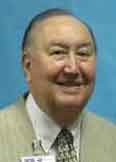 Since his early days in Lafayette, Louisiana, his ministry has been that of liturgical song, especially accompanied by guitar. He has a gift for simple, easy-to-learn melodies that congregations pick up quickly. He has a true gift for clear English and attractive tunes. He is blest with a living faith that his songs embody, bringing people to genuine prayer. He has a master's degree in theology from the Catholic University of America. Since 1972, Carey Landry and his wife, Carol Jean Kinghorn, are known for their concerts, workshops, and participation in the liturgy. To the present day, Carey Landry does his best to bring people to a deeper faith and to fuller sharing in the liturgy. At St. Vincent Carmel Hospital in Indianpolis, Indiana, he continues to serve people as a chaplain. Since his early days in Lafayette, Louisiana, his ministry has been that of liturgical song, especially accompanied by guitar. He has a gift for simple, easy-to-learn melodies that congregations pick up quickly. He has a true gift for clear English and attractive tunes. He is blest with a living faith that his songs embody, bringing people to genuine prayer. He has a master's degree in theology from the Catholic University of America. Since 1972, Carey Landry and his wife, Carol Jean Kinghorn, are known for their concerts, workshops, and participation in the liturgy. To the present day, Carey Landry does his best to bring people to a deeper faith and to fuller sharing in the liturgy. At St. Vincent Carmel Hospital in Indianpolis, Indiana, he continues to serve people as a chaplain.
American Catholic Press is fortunate to have several songs by Carey Landry, in various arrangements. Some of them date back to his days at Theological College in Washington, D.C., where they were first published. In the American Catholic Hymnbook, here are the songs we make available: Litany ("O Lord Our God"), Pardon Your People, Shout Joyfully, The Spirit Is A-Movin', and Where Two or Three.
Robert Martz earned his Bachelor's degree in music education at VanderCook College of Music, in Chicago. He also studied at the American Conservatory of Music. Finally, he earned a doctorate in musical arts [D.M.A.] at the University of Illinois. As part of his doctoral work, he prepared a new setting of the Requiem Mass. For American Catholic Press, Dr. Martz did considerable editorial and engraving work. For some years, Dr. Martz taught music in a private Catholic high school in downstate Illinois.
Jack Miffleton has been writing children's hymns for thirty years. 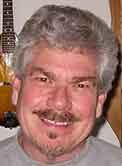 Currently, he teaches music at St. Jarlath's School in Oakland, California. The American Catholic Hymnbook includes two of his songs: Called to One Hope and Go Tell Your People. Usually accompanied with guitar, these hymns are effective with both children and adults; they are catchy and easy to sing. Currently, he teaches music at St. Jarlath's School in Oakland, California. The American Catholic Hymnbook includes two of his songs: Called to One Hope and Go Tell Your People. Usually accompanied with guitar, these hymns are effective with both children and adults; they are catchy and easy to sing.
Jean-Joseph Mouret was born in Avignon, France, in 1682. His compositions made him one of the principal Baroque musicians in all of France. About 1708 he acquired a patron, Anne, the Duchess of Maine, in Sceaux, near Paris. His works included operas, dances, cantatas, and other compositions, for the entertainment of the nobility. 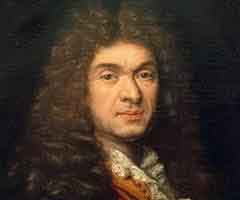 From 1717 on, he had substantial compensation as a singer, composer, and director of a concert series. He lived an affluent life, caring for his wife and only child, a daughter. However, towards the end of his life, things did not go well. He died in poverty, in an asylum run by the Church, in 1738. From 1717 on, he had substantial compensation as a singer, composer, and director of a concert series. He lived an affluent life, caring for his wife and only child, a daughter. However, towards the end of his life, things did not go well. He died in poverty, in an asylum run by the Church, in 1738.
For American Catholic Press, Mouret's contribution is the tune and arrangement, We Will Bring You Honor, a hymn by Daniel H. Graham. This composition is # 387 in the American Catholic Hymnbook. The tune itself is well known as the theme from Masterpiece Theater, on PBS. It is the first of his two Suites de symphonies, composed in 1729; this theme he entitled "Fanfare for trumpets, timpani, violins, and oboes." It is in the rondeau form. The hymn itself, in Graham's imagery, is largely from the Book of Revelation; it is eschatological in character. Many brides like to have the hymn at their weddings. For Sunday Mass, the text is most appropriate at the end of Ordinary Time and during Advent. The hymn is clearly directed to the Father: "Your kingdom come, your will be done." Christ is referred to at the end of the refrain as "your Anointed One." The majestic, stirring melody is inspiring, especially with trumpet and full instrumental accompaniment.
 Wolfgang Amadeus Mozart was born in Salzburg, Austria, in 1756; at his baptism he was christened John Chrysostom Wolfgang Theophilus Mozart. He was a lifelong Catholic. Mozart was a chlld prodigy and a prolific composer till his death at age 35. Of his c. 600 compositions, his last was an unfinished setting of the Requiem Mass. His works included symphonies, concertos, chamber settings, operas, and choral music. He is perhaps the most well known of the classical composers. His concert tours took him to Vienna, Prague, Munich, Mannerheim, Paris, and London. Especially in Bologna, Rome, and Milan, Mozart wrote operas and other works, with considerable Italian influence. From 1773, he was a court musician for the ruler of Salzburg, Archbishop Hieronymus Collereo, who treated Mozart as a servant. He left that position in 1777. After working in Paris and elsewhere, he settled in Vienna, where he married Constanze Weber; they had six children. He studied the compositions of Bach and Handel and became friends with Joseph Haydn. In 1787 he got a steady, well paying position working for the Emperor Joseph II. His job was to write dances for annual balls. However, his expenses exceeded his income; he was in financial need. Trips to Leipzig, Dresden, and Berlin did not help very much. Wolfgang Amadeus Mozart was born in Salzburg, Austria, in 1756; at his baptism he was christened John Chrysostom Wolfgang Theophilus Mozart. He was a lifelong Catholic. Mozart was a chlld prodigy and a prolific composer till his death at age 35. Of his c. 600 compositions, his last was an unfinished setting of the Requiem Mass. His works included symphonies, concertos, chamber settings, operas, and choral music. He is perhaps the most well known of the classical composers. His concert tours took him to Vienna, Prague, Munich, Mannerheim, Paris, and London. Especially in Bologna, Rome, and Milan, Mozart wrote operas and other works, with considerable Italian influence. From 1773, he was a court musician for the ruler of Salzburg, Archbishop Hieronymus Collereo, who treated Mozart as a servant. He left that position in 1777. After working in Paris and elsewhere, he settled in Vienna, where he married Constanze Weber; they had six children. He studied the compositions of Bach and Handel and became friends with Joseph Haydn. In 1787 he got a steady, well paying position working for the Emperor Joseph II. His job was to write dances for annual balls. However, his expenses exceeded his income; he was in financial need. Trips to Leipzig, Dresden, and Berlin did not help very much.
In the American Catholic Hymnbook, Christ Has Died is derived from Mozart's Exsultate Jubilate. From 1970 to 2010, this antiphon was sung as a memorial acclamation in the Eucharistic Prayer. From 2011 to the present, it is sung, for example, as a Communion antiphon. The hymn Rejoice and Sing is also derived from Mozart's work. This hymn is especially appropriate for the RCIA, for baptism/confirmation, and for the Easter Season.
Richard Prendergast grew up and lived for many years in St. Giles Parish, in Oak Park, Illinois. In fact, he is a third-generation citizen of Oak Park. He spent ten years in the seminary system. For example, he graduated from Quigley Seminary in 1961. While a student at Mundelein Seminary, in Mundelein, Illinois, now part of the University of St. Mary of the Lake, he wrote the hymnTo Christ the King, to the tune OLD ONE HUNDREDTH. This hymn was published in the earliest editions of The Johannine Hymnal and is still sung today.
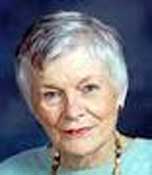 Betty Pulkingham is both a composer and arranger. Her music has been recorded and published throughout the English-speaking world. She was educated at the University of North Carolina at Greensboro (UNC-G) and the Eastern School of Music. She has co-edited three major songbooks and one hymnal supplement. She has also written many hymns, anthems, and descants, as well as songs for children. For ACP, she wrote several arrangements for Canticle of the Gift. Betty Pulkingham is both a composer and arranger. Her music has been recorded and published throughout the English-speaking world. She was educated at the University of North Carolina at Greensboro (UNC-G) and the Eastern School of Music. She has co-edited three major songbooks and one hymnal supplement. She has also written many hymns, anthems, and descants, as well as songs for children. For ACP, she wrote several arrangements for Canticle of the Gift.
For many years, Betty Pulkingham was active at the Church of the Redeemer in Houston, Texas. In 1972, with members of that community, she moved to Coventry, England, where the Community of Celebration was formed as a Trust. Their ministry has been worldwide. Although people came to the community for individual renewal, it became well known through the Fisherfolk. These were small groups of lay ministers, usually young people, who traveled through England and Wales, as well as overseas. Their songs and prayer services were especially popular in the 1970's and 1980's. By the early 1980's, there were several Communities of Celebration, linked together as one society.
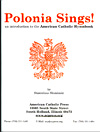 Peter Rogalski is widely known for his translation and adaptations of hymns from Eastern Europe. He studied both at St. Xavier's University in Chicago and at Northwestern, in Evanston, Illinois. Although he was born in Chicago, Mr. Rogalski knows Polish hymns especially well, from his experience in Polish choirs. He has participated in both concert and church performances, making use of a wide range of songs. Overall, he is committed to making known the musical heritage of the Slavic Christians of Eastern Europe. Peter Rogalski is widely known for his translation and adaptations of hymns from Eastern Europe. He studied both at St. Xavier's University in Chicago and at Northwestern, in Evanston, Illinois. Although he was born in Chicago, Mr. Rogalski knows Polish hymns especially well, from his experience in Polish choirs. He has participated in both concert and church performances, making use of a wide range of songs. Overall, he is committed to making known the musical heritage of the Slavic Christians of Eastern Europe.
William P. Rowan was born in San Diego, California in 1951. He is a graduate of Southern Illinois University (B.A. and M.M.) and the University of Michigan (M.M.) For many years, he served as director of music at St. Mary Cathedral in Lansing, Michigan. 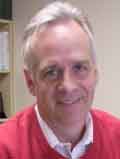 He was also music director for St. Rita parish in Dallas, Texas. Since 2008, he has worked as a department analyst for the Michigan Department of Education. He is the composer of many published hymn tunes, anthems, and organ works. His hymn settings have been sung at hymn festivals throughout the U.S., Great Britain, and Europe. He is author of Together Met, Together Bound. He is a founding member of the Huron Valley chapter of The Hymn Society. He was also music director for St. Rita parish in Dallas, Texas. Since 2008, he has worked as a department analyst for the Michigan Department of Education. He is the composer of many published hymn tunes, anthems, and organ works. His hymn settings have been sung at hymn festivals throughout the U.S., Great Britain, and Europe. He is author of Together Met, Together Bound. He is a founding member of the Huron Valley chapter of The Hymn Society.
William Rowan's contribution to the American Catholic Hymnbook is Far above the Water, a hymn for baptism, confirmation, the RCIA, Eastertime, and the first Sundays of Ordinary Time. The beautiful melody is an excellent match for the text by William Burns. This text is in large part that proposed explicitly in the RCIA.
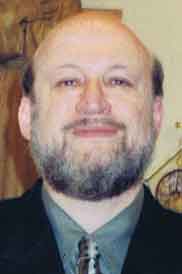 Mark Russakoff graduated magna cum laude from Washington University, with a major in music and minors in French and German. He was an organ student of Robert Danes and Howard Kelsey, as well as a harpsicord student of Anne Gallet de Boissy. In 1973 he earned a certificate d'execution instrumentale: orgue et clavecin, at the Strasbourg National Conservatory. In 1975, he earned a master's degree in music at Northwestern University, Evanston, Illinois, specializing in organ performance. He was an organ student of Wolfgang Rubsam and Richard Enright. In 1981, he earned a doctorate in music from Northwestern, again in organ performance. Dr. Russakoff has been a music director for various Catholic churches since the late 1980's. He was also music director at St. Irenaeus Church, in Park Forest, Illinois. For ACP, Dr. Russakoff edited the ACP Psalter and arranged Canticle of the Gift. Mark Russakoff graduated magna cum laude from Washington University, with a major in music and minors in French and German. He was an organ student of Robert Danes and Howard Kelsey, as well as a harpsicord student of Anne Gallet de Boissy. In 1973 he earned a certificate d'execution instrumentale: orgue et clavecin, at the Strasbourg National Conservatory. In 1975, he earned a master's degree in music at Northwestern University, Evanston, Illinois, specializing in organ performance. He was an organ student of Wolfgang Rubsam and Richard Enright. In 1981, he earned a doctorate in music from Northwestern, again in organ performance. Dr. Russakoff has been a music director for various Catholic churches since the late 1980's. He was also music director at St. Irenaeus Church, in Park Forest, Illinois. For ACP, Dr. Russakoff edited the ACP Psalter and arranged Canticle of the Gift.
William Schafer, "Bill," like Richard Prendergast, grew up in St. Giles parish, Oak Park, Illinois. As a student, Bill was already recognized as a fine pianist; he also mastered the guitar. In the early 1970s Bill spent eight years studying under Selma Fraiberg, of the University of Michigan, the Psychiatry Department; he earned a Ph.D. there. 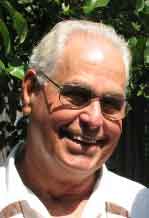 Afterwards, Bill served as a board member and president of the Michigan Association for Infant Mental Health. For about thirty years, he was a teacher and mentor for many specialists in infant mental health. He also had his own private practice in Ann Arbor, Michigan. Bill is now retired but still gives workshops in his field. Afterwards, Bill served as a board member and president of the Michigan Association for Infant Mental Health. For about thirty years, he was a teacher and mentor for many specialists in infant mental health. He also had his own private practice in Ann Arbor, Michigan. Bill is now retired but still gives workshops in his field.
As a young man, while living in St. Stephen's parish, Des Plaines, Illinois, he wrote three songs that have become very popular: God Forbid that I Should Boast, My People, and The Right Hand of the Lord. Bill chose the Scriptural texts that form the core of these songs; he also wrote the melody and chords for each. God Forbid and The Right Hand are metrical Psalms, especially for Lent and Eastertime. My People is intended as a replacement for the Good Friday Reproaches, which in their original version are understood by some to be anti-Semitic. My People, on the other hand, has God reproaching his people up to the present time, i.e., including the Church. In this way, the Scriptural theme of God reproaching his people is extended to us, calling the People of God to repentance, today. All three songs are published in the American Catholic Hymnbook and the ACP Leaflet Missal prayerbook.
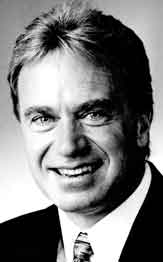 Dan Schutte of Milwaukee, Wisconsin, is perhaps the best known member of the "St. Louis Jesuits." His skill includes authorship, melodic writing, and even music arranging. He composed several hymns which appeared for the first time in the 1992 edition of the American Catholic Hymnbook, such as River of Glory, Sing, O Sing, and We Are All One People. For that hymnbook, he also arranged such songs as Wake up in Wonder. Dan's most popular hymns from the 1970's, such as Blest Be the Lord, City of God, Here I Am, and Though the Mountains May Fall, are also found in this hymnbook. Dan Schutte of Milwaukee, Wisconsin, is perhaps the best known member of the "St. Louis Jesuits." His skill includes authorship, melodic writing, and even music arranging. He composed several hymns which appeared for the first time in the 1992 edition of the American Catholic Hymnbook, such as River of Glory, Sing, O Sing, and We Are All One People. For that hymnbook, he also arranged such songs as Wake up in Wonder. Dan's most popular hymns from the 1970's, such as Blest Be the Lord, City of God, Here I Am, and Though the Mountains May Fall, are also found in this hymnbook.
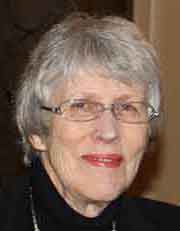 Helen Silvia edited the 1973/1978 editions of the keyboard accompaniment book for The Johannine Hymnal, now known as the American Catholic Hymnbook. She did this work with a special concern for the many organists in Catholic churches who lack extensive musical training. For many years, Helen Silvia played the organ at Faith United Church in Park Forest, Illinois. She was also organist at St. Irenaeus Church, in Park Forest. She is also past president of the Illinois Philharmonic Orchestra. Helen Silvia arranged numerous hymns and acclamations, among them, Now for the Father and There Is a Time. Helen Silvia edited the 1973/1978 editions of the keyboard accompaniment book for The Johannine Hymnal, now known as the American Catholic Hymnbook. She did this work with a special concern for the many organists in Catholic churches who lack extensive musical training. For many years, Helen Silvia played the organ at Faith United Church in Park Forest, Illinois. She was also organist at St. Irenaeus Church, in Park Forest. She is also past president of the Illinois Philharmonic Orchestra. Helen Silvia arranged numerous hymns and acclamations, among them, Now for the Father and There Is a Time.
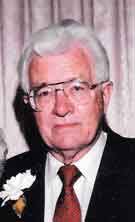 Leonard Simutis was a dedicated professor of music at Chicago State University. Dr. Simutis was also professor of music and department chairman at DePaul University. He directed choirs at St. Rita's High School, DeLaSalle High School, Fenwick High School and Christ the King parish. He was a 4th degree Knight of Columbus. Dr. Simutis was also a composer of operas, ballets and liturgical music. He is the composer of the Mass for Parishes, which appears in both the ACP Leaflet Missal prayerbook and the American Catholic Hymnbook. The organ setting for this Mass is particularly beautiful. Dr. Simutis also contributed several arrangements to the 1992 edition of the hymnbook. Leonard Simutis was a dedicated professor of music at Chicago State University. Dr. Simutis was also professor of music and department chairman at DePaul University. He directed choirs at St. Rita's High School, DeLaSalle High School, Fenwick High School and Christ the King parish. He was a 4th degree Knight of Columbus. Dr. Simutis was also a composer of operas, ballets and liturgical music. He is the composer of the Mass for Parishes, which appears in both the ACP Leaflet Missal prayerbook and the American Catholic Hymnbook. The organ setting for this Mass is particularly beautiful. Dr. Simutis also contributed several arrangements to the 1992 edition of the hymnbook.
Otto Singenberger, the son of the famous John Singenberger, was the first music director of Mundelein Seminary, from 1924 to 1938. Professor Singenberger was also music director for the schools of the entire Milwaukee Archdiocese. On special occasions, he directed children's choirs as large as 2,500 singers. He also had influence on church music throughout the United States, through his Ceciliaverein, as well as his many articles and musical settings. His melodies and arrangements provided by ACP are In Christ the Prince of Peace and the Divine Praises.
 Father Ralph Verdi, C.PP.S., did parish work at Our Lady of Good Counsel parish in Rensselaer, Indiana; he was also professor of music at St. Joseph's College for 31 years. He studied at St. Joseph's, the University of Dayton, St. Bernard's Seminary, and the Eastman School of Music. There, he earned a master's degree in music composition. He earned a Ph.D. in musicology at the Catholic University of America. Father Ralph Verdi, C.PP.S., did parish work at Our Lady of Good Counsel parish in Rensselaer, Indiana; he was also professor of music at St. Joseph's College for 31 years. He studied at St. Joseph's, the University of Dayton, St. Bernard's Seminary, and the Eastman School of Music. There, he earned a master's degree in music composition. He earned a Ph.D. in musicology at the Catholic University of America.
For ACP, Father Verdi wrote the melody and arrangement for Do This in Memory of Me, by Mary Ann O'Brien. This hymn reflects the memorial aspect of the Eucharist; it would be especially appropriate for the preparation of gifts at Sunday Mass, Corpus Christi, and Holy Thursday. Father Verdi also wrote the melody and arrangement for Cleanse Us, Lord and O Father, Creator. He also wrote the melody and arrangement for We Come to You, Lord Jesus. This is an acclamation for the RCIA.
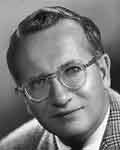 Paul Weston was a twentieth-century, American musician, of considerable fame. He wrote classical music (e.g., Crescent City Suite), as well as several hymns and Mass-settings. He was perhaps most well known for his popular songs. His skills included composing, arranging, and conducting. He was also an accomplished pianist. Born in Springfield, Massachusetts, in 1912, he studied at Dartmouth College and Columbia University. In 1936 he joined the orchestra of Tommy Dorsey. He later worked with Dinah Shore and began work in Hollywood. There, he composed music for Capitol Records, where he met his future wife, Jo Stafford. He won numerous awards from his television work, as music director. On the Hollywood Walk of Fame, Paul Weston has his own star. After the couple's retirement in the 1970s, the couple gave much of their time helping charities for the developmentally disabled. He was a lifelong Catholic until his death in 1996, at the age of 84. Paul Weston was a twentieth-century, American musician, of considerable fame. He wrote classical music (e.g., Crescent City Suite), as well as several hymns and Mass-settings. He was perhaps most well known for his popular songs. His skills included composing, arranging, and conducting. He was also an accomplished pianist. Born in Springfield, Massachusetts, in 1912, he studied at Dartmouth College and Columbia University. In 1936 he joined the orchestra of Tommy Dorsey. He later worked with Dinah Shore and began work in Hollywood. There, he composed music for Capitol Records, where he met his future wife, Jo Stafford. He won numerous awards from his television work, as music director. On the Hollywood Walk of Fame, Paul Weston has his own star. After the couple's retirement in the 1970s, the couple gave much of their time helping charities for the developmentally disabled. He was a lifelong Catholic until his death in 1996, at the age of 84.
Weston contributed many keyboard arrangements to American Catholic Press, for example, Great God, High Heaven, O Christ, You Are King, O God, I Waited, and You Favored, O Father.
 Father Richard Wojcik prepared the organ accompaniment for I Lift My Soul. He holds both the S.T.L. [Licentiate in Theology] and an advanced degree in Gregorian Chant, earned in Rome. For many years, he was professor of music at the University of St. Mary of the Lake in Mundelein, Illinois. There, he was known as an excellent director of both the polyphonic choir and the Gregorian Chant schola. He also directed the choir for many years at Prince of Peace Church in Lake Villa, Illinois. His articles on music in the liturgy have been published in several periodicals, including Pastoral Music. In the 1960's, he made editing contributions to several hymnals, including The Johannine Hymnal. Father Wojcik is the author of Your Kingdom Come, also known as the Ecumenical Hymn to God our Father and O Love, who drew from Jesus' side. This hymn is number 399 in the American Catholic Hymnbook. He also arranged the metrical Psalm, Lord, I Will Live for You, with a Polish tune. Father Richard Wojcik prepared the organ accompaniment for I Lift My Soul. He holds both the S.T.L. [Licentiate in Theology] and an advanced degree in Gregorian Chant, earned in Rome. For many years, he was professor of music at the University of St. Mary of the Lake in Mundelein, Illinois. There, he was known as an excellent director of both the polyphonic choir and the Gregorian Chant schola. He also directed the choir for many years at Prince of Peace Church in Lake Villa, Illinois. His articles on music in the liturgy have been published in several periodicals, including Pastoral Music. In the 1960's, he made editing contributions to several hymnals, including The Johannine Hymnal. Father Wojcik is the author of Your Kingdom Come, also known as the Ecumenical Hymn to God our Father and O Love, who drew from Jesus' side. This hymn is number 399 in the American Catholic Hymnbook. He also arranged the metrical Psalm, Lord, I Will Live for You, with a Polish tune.
Wu Yü-shan was a Chinese Catholic priest, from the sixteenth century, the time of the Ming dynasty, after the Mongols were overthrown. His Chinese hymn, High Heaven, was written in the dominant Han dialect and is translated by Lydia Kho, adapted by Robert Brennan. The tune is Gû-lê-koa, a Chinese tune from Taiwan. The arrangement of this tune is by Paul Weston. The hauntingly beautiful tune, majestic and solemn, is well complemented by Weston's composition. High Heaven is published in the American Catholic Hymnbook.
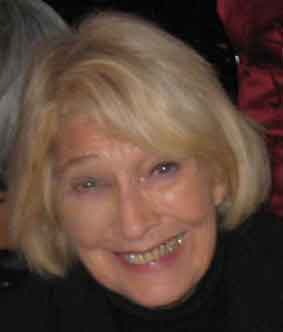 Iris Zahara studied under Dr. Rudolph Ganz, at the American Conservatory. Her father, a church organist, gave her first-hand experience of the handiwork of J.S.Bach. She spent summers at Interlochen in Michigan and did her undergraduate work at Indiana University. There, she majored in both piano and cello performance. She also studied under Rosina Llevine at the Julliard School of Music. Finally, she earned a doctorate in performance from Northwestern University, in Evanston, Illinois. Dr. Zahara worked as an assistant to the renowned Leo Sowerby, at St. James Cathedral in Chicago. With his support and encouragement, she began a career in church music. Since 1966, she has been the music director at Infant Jesus of Prague Church, in Flossmoor, Illinois. She directs several choirs there, trains cantors, and accompanies the liturgy on the keyboard. Dr. Zahara has provided competent instruction for literally hundreds of students, many of whom have gone on to successful careers in music. For ACP, Dr. Zahara arranged the Slovak hymn, God Is King. Iris Zahara studied under Dr. Rudolph Ganz, at the American Conservatory. Her father, a church organist, gave her first-hand experience of the handiwork of J.S.Bach. She spent summers at Interlochen in Michigan and did her undergraduate work at Indiana University. There, she majored in both piano and cello performance. She also studied under Rosina Llevine at the Julliard School of Music. Finally, she earned a doctorate in performance from Northwestern University, in Evanston, Illinois. Dr. Zahara worked as an assistant to the renowned Leo Sowerby, at St. James Cathedral in Chicago. With his support and encouragement, she began a career in church music. Since 1966, she has been the music director at Infant Jesus of Prague Church, in Flossmoor, Illinois. She directs several choirs there, trains cantors, and accompanies the liturgy on the keyboard. Dr. Zahara has provided competent instruction for literally hundreds of students, many of whom have gone on to successful careers in music. For ACP, Dr. Zahara arranged the Slovak hymn, God Is King.
American Catholic Press. © 1994- by ACP Publications, All Rights Reserved
|


 Jeanette Dandurand is the music director at St. Stanislaus Church in Posen, Illinois. She directs several choirs, including a Polish-language choir. Currently, she teaches music in the St. George grade school, in Tinley Park. She did much careful work editing the 1987 Leaflet Missal Keyboard Accompaniment Book, the 1990
Jeanette Dandurand is the music director at St. Stanislaus Church in Posen, Illinois. She directs several choirs, including a Polish-language choir. Currently, she teaches music in the St. George grade school, in Tinley Park. She did much careful work editing the 1987 Leaflet Missal Keyboard Accompaniment Book, the 1990  Mark Downey is the former music director of the Roman Catholic Diocese of Joliet, Illinois. For some years now, he has been music director at Holy Family Church in Park Forest, Illinois. He was also choir director and music instructor at Thornridge High School in Harvey, Illinois. Mark Downey holds a master's degree in music from Roosevelt University in Chicago. He also studied choral conducting at the Royal School of Church Music in London. His arrangements published by ACP include
Mark Downey is the former music director of the Roman Catholic Diocese of Joliet, Illinois. For some years now, he has been music director at Holy Family Church in Park Forest, Illinois. He was also choir director and music instructor at Thornridge High School in Harvey, Illinois. Mark Downey holds a master's degree in music from Roosevelt University in Chicago. He also studied choral conducting at the Royal School of Church Music in London. His arrangements published by ACP include  She married Richard Farina at the age of eighteen, in Paris. They produced several albums of folk songs. After Richard's death on her 21st birthday, she married Milvan Melvin but retained the name of her first husband. In 1974, she founded a non-profit organization, Bread and Roses; its purpose was to bring music to jails and other institutions. Soon, the organization was producing as many as 500 shows per year. The name of the organization comes from a 1911 poem by James Oppenheim; the poem was associated with a 1912 workers' strike in Lawerence, Massachusetts.
She married Richard Farina at the age of eighteen, in Paris. They produced several albums of folk songs. After Richard's death on her 21st birthday, she married Milvan Melvin but retained the name of her first husband. In 1974, she founded a non-profit organization, Bread and Roses; its purpose was to bring music to jails and other institutions. Soon, the organization was producing as many as 500 shows per year. The name of the organization comes from a 1911 poem by James Oppenheim; the poem was associated with a 1912 workers' strike in Lawerence, Massachusetts. Father Joseph Gelineau, S.J. was born in the village of Champ-sur-Layon in France. As a boy, afflicted with tuberculosis, he was out of school for an extended time. To strengthen his lungs, he took up horn-playing. As a young Jesuit, he studied composition and organ at the École César-Frank in Paris. He obtained a doctorate in theology, with a dissertation on psalmody in the Syrian Church in the 4th-5th centuries. Throughout his life, he was influenced by Gregorian Chant. Father Aimé-Georges Martimort encouraged Gelineau to study how to sing Psalms in French. So, he came to work on the Psalm translations of the Jerusalem Bible. The complete Psalter of Gelineau and his colleagues was first published in 1955, in French. The English-language version was published in 1963, edited by two Dutch Cistercians, Hubert Richards, and A. Gregory Murray, O.S.B. The first Psalm setting that Gelineau wrote was that of Psalm 23, in English, "My Shepherd is the Lord." Gelineau's musical settings of the Psalms are still sung all over the world. He also wrote many church songs, hymn collections for the Divine Office, and a score of settings of the Mass. He also wrote for the monastery of Taizé. Gelineau was not only a skilled composer; he was also a scholar of the liturgy. His 1964 Voices and Instruments prepared the way for the restoration of the Responsorial Psalm in the Roman Catholic Lectionary. He wrote extensively for Église qui chante (which he helped found) and La Maison-Dieu, as well as other publications. Gelineau himself was responsible for the introduction of the memorial acclamation in the Eucharistic Prayer. Other publications available in English, for example, are Pastoral Liturgy: A Symposium and The Liturgy Today and Tomorrow. For 25 years, he lectured at the Institut Catholique in Paris. His last years were spent in parish work, first at St. Ignatius church in Paris, then in a cluster of communities in Écuelles. He also arranged Hosanna, an antiphon for Palm Sunday.
Father Joseph Gelineau, S.J. was born in the village of Champ-sur-Layon in France. As a boy, afflicted with tuberculosis, he was out of school for an extended time. To strengthen his lungs, he took up horn-playing. As a young Jesuit, he studied composition and organ at the École César-Frank in Paris. He obtained a doctorate in theology, with a dissertation on psalmody in the Syrian Church in the 4th-5th centuries. Throughout his life, he was influenced by Gregorian Chant. Father Aimé-Georges Martimort encouraged Gelineau to study how to sing Psalms in French. So, he came to work on the Psalm translations of the Jerusalem Bible. The complete Psalter of Gelineau and his colleagues was first published in 1955, in French. The English-language version was published in 1963, edited by two Dutch Cistercians, Hubert Richards, and A. Gregory Murray, O.S.B. The first Psalm setting that Gelineau wrote was that of Psalm 23, in English, "My Shepherd is the Lord." Gelineau's musical settings of the Psalms are still sung all over the world. He also wrote many church songs, hymn collections for the Divine Office, and a score of settings of the Mass. He also wrote for the monastery of Taizé. Gelineau was not only a skilled composer; he was also a scholar of the liturgy. His 1964 Voices and Instruments prepared the way for the restoration of the Responsorial Psalm in the Roman Catholic Lectionary. He wrote extensively for Église qui chante (which he helped found) and La Maison-Dieu, as well as other publications. Gelineau himself was responsible for the introduction of the memorial acclamation in the Eucharistic Prayer. Other publications available in English, for example, are Pastoral Liturgy: A Symposium and The Liturgy Today and Tomorrow. For 25 years, he lectured at the Institut Catholique in Paris. His last years were spent in parish work, first at St. Ignatius church in Paris, then in a cluster of communities in Écuelles. He also arranged Hosanna, an antiphon for Palm Sunday. Noel Goemanne ("goomahn") for many years was organist and choirmaster at Christ the King Church in Dallas, Texas. He is a graduate of the Lemmens Institute of Belgium, where he received the diploma of Laureate. He pursued post-graduate study of organ and improvisation with the celebrated composer Flor Peeters; he also studied at the Royal Conservatory of Liége.
Noel Goemanne ("goomahn") for many years was organist and choirmaster at Christ the King Church in Dallas, Texas. He is a graduate of the Lemmens Institute of Belgium, where he received the diploma of Laureate. He pursued post-graduate study of organ and improvisation with the celebrated composer Flor Peeters; he also studied at the Royal Conservatory of Liége.  Of Handel's contemporaries, only Johann Sebastian Bach might be considered his peer.
Of Handel's contemporaries, only Johann Sebastian Bach might be considered his peer. John Michael Haydn (1737-1806) was an Austrian composer of the classical period; he was the younger brother of Joseph Haydn, often referred to by the name "Michael." In childhood, he excelled as a boy soprano. He was Kapellmeister in Salzburg for 43 years; during that time he wrote over 360 compositions. Mozart said that he respected Haydn's work highly. His brother Joseph said that Michael's religious compositions were superior to his own. Most scholars consider Haydn's choral settings as his best works. These include a Requiem Mass in C minor, which influenced Mozart's Requiem. Haydn also wrote the Missa Hispanica and the
St. Francis Mass in D minor, and a set of graduals. His secular compositions include forty symphonies and wind partitas.
John Michael Haydn (1737-1806) was an Austrian composer of the classical period; he was the younger brother of Joseph Haydn, often referred to by the name "Michael." In childhood, he excelled as a boy soprano. He was Kapellmeister in Salzburg for 43 years; during that time he wrote over 360 compositions. Mozart said that he respected Haydn's work highly. His brother Joseph said that Michael's religious compositions were superior to his own. Most scholars consider Haydn's choral settings as his best works. These include a Requiem Mass in C minor, which influenced Mozart's Requiem. Haydn also wrote the Missa Hispanica and the
St. Francis Mass in D minor, and a set of graduals. His secular compositions include forty symphonies and wind partitas. Father Lawrence Heiman, C.PP.S., taught at St. Joseph's College, Rensselaer, Indiana, for 58 years. He directed theatrical productions, choir, band, and the glee club. He had a licenciate and a master's degree in Gregorian Chant, as well as a doctorate in sacred music from the Pontifical Institute in Rome. He was one of the founding fathers of the National Association of Pastoral Musicians, the Church Music Association of America, and the Composers' Forum for Catholic Music. In 1960 he founded the Rensselaer Program of Church Music and Liturgy, which he directed for 35 summers. In 1998 he began the summer Gregorian Chant Institute.
Father Lawrence Heiman, C.PP.S., taught at St. Joseph's College, Rensselaer, Indiana, for 58 years. He directed theatrical productions, choir, band, and the glee club. He had a licenciate and a master's degree in Gregorian Chant, as well as a doctorate in sacred music from the Pontifical Institute in Rome. He was one of the founding fathers of the National Association of Pastoral Musicians, the Church Music Association of America, and the Composers' Forum for Catholic Music. In 1960 he founded the Rensselaer Program of Church Music and Liturgy, which he directed for 35 summers. In 1998 he began the summer Gregorian Chant Institute. Pat Uhl Howard was born in Washington, D.C., the eldest of five daughters. A few years later, the family moved to Cincinnati, Ohio. Pat studied at Grailville Community College, Loveland, Ohio. She then moved to Canada, to study at the University of Toronto. Afterwards, in Saskatchewan, she was involved in community organizing with the local Federation of Indians and the Metis. At the University, she earned her B.A. and M.A. in political science. She married Roger Howard and was an exchange student in China.
Pat Uhl Howard was born in Washington, D.C., the eldest of five daughters. A few years later, the family moved to Cincinnati, Ohio. Pat studied at Grailville Community College, Loveland, Ohio. She then moved to Canada, to study at the University of Toronto. Afterwards, in Saskatchewan, she was involved in community organizing with the local Federation of Indians and the Metis. At the University, she earned her B.A. and M.A. in political science. She married Roger Howard and was an exchange student in China.  They studied Chinese and philosophy in Beijing. She taught English in Guanzhou and social sciences in inner Mongolia. During this time, she researched her Ph.D. dissertation on communication in China's countryside. She earned her doctorate from Simon Fraser University, Vancouver. She has been a professor of communication there since 1990.
They studied Chinese and philosophy in Beijing. She taught English in Guanzhou and social sciences in inner Mongolia. During this time, she researched her Ph.D. dissertation on communication in China's countryside. She earned her doctorate from Simon Fraser University, Vancouver. She has been a professor of communication there since 1990. Sister Theophane Hytrek, SSSF, for many years was a music professor at Alverno College, Milwaukee, Wisconsin. She was born in Stuart, Nebraska. After her reception into her religious community, she studied composition and organ performance. She was an internationally renowned recitalist and composer. Sister Theophane was actively involved in the National Catholic Music Educators Association (NCMEA) and other professional organizations. With a major in composition, her doctorate was was from the Eastman School of Music.
Sister Theophane Hytrek, SSSF, for many years was a music professor at Alverno College, Milwaukee, Wisconsin. She was born in Stuart, Nebraska. After her reception into her religious community, she studied composition and organ performance. She was an internationally renowned recitalist and composer. Sister Theophane was actively involved in the National Catholic Music Educators Association (NCMEA) and other professional organizations. With a major in composition, her doctorate was was from the Eastman School of Music. Robert Kreutz was an engineer by trade and educational background. Yet he was also one of the most gifted
arrangers and composers in the Roman Catholic Church in the U.S. in the twentieth century. He studied organ under the highly respected Dr. Eigenschenck of the Chicago Conservatory. He studied composition under Leo Sowerby of the American Conservatory in Chicago. He also studied under Arnold Schoenberg [at UCLA] and Normand Lockwood [at the University of Denver]. He holds an M.A. in composition from the University of Denver. On a national level, Robert Kreutz is the recipient of numerous awards and commissions. He did many works for the Church, both arrangements and original compositions. In 1987, his opera Francesco, on the life of St. Francis, made its premiere. He was blest with a genuine gift for beautiful melodic composition, sound voice leading, and masterful arrangements. Above all, his settings are marked by an exquisitive sensitivity to the natural rhythm and accent of the text itself. Perhaps his most well known song is Gift of Finest Wheat, first performed at a Eucharistic Congress in Philadelphia, Pennsylvania. Other noteworthy compositions of his include Father, Make Us One, and We Are The Vineyard. He also arranged such songs as How Holy the Banquet, Just as the Grain, and We Will Bring You Honor. Kreutz also contributed the melody and arrangement for the Sanctus and Agnus Dei from his Mass of Praise.
Robert Kreutz was an engineer by trade and educational background. Yet he was also one of the most gifted
arrangers and composers in the Roman Catholic Church in the U.S. in the twentieth century. He studied organ under the highly respected Dr. Eigenschenck of the Chicago Conservatory. He studied composition under Leo Sowerby of the American Conservatory in Chicago. He also studied under Arnold Schoenberg [at UCLA] and Normand Lockwood [at the University of Denver]. He holds an M.A. in composition from the University of Denver. On a national level, Robert Kreutz is the recipient of numerous awards and commissions. He did many works for the Church, both arrangements and original compositions. In 1987, his opera Francesco, on the life of St. Francis, made its premiere. He was blest with a genuine gift for beautiful melodic composition, sound voice leading, and masterful arrangements. Above all, his settings are marked by an exquisitive sensitivity to the natural rhythm and accent of the text itself. Perhaps his most well known song is Gift of Finest Wheat, first performed at a Eucharistic Congress in Philadelphia, Pennsylvania. Other noteworthy compositions of his include Father, Make Us One, and We Are The Vineyard. He also arranged such songs as How Holy the Banquet, Just as the Grain, and We Will Bring You Honor. Kreutz also contributed the melody and arrangement for the Sanctus and Agnus Dei from his Mass of Praise. Since his early days in Lafayette, Louisiana, his ministry has been that of liturgical song, especially accompanied by guitar. He has a gift for simple, easy-to-learn melodies that congregations pick up quickly. He has a true gift for clear English and attractive tunes. He is blest with a living faith that his songs embody, bringing people to genuine prayer. He has a master's degree in theology from the Catholic University of America. Since 1972, Carey Landry and his wife, Carol Jean Kinghorn, are known for their concerts, workshops, and participation in the liturgy. To the present day, Carey Landry does his best to bring people to a deeper faith and to fuller sharing in the liturgy. At St. Vincent Carmel Hospital in Indianpolis, Indiana, he continues to serve people as a
Since his early days in Lafayette, Louisiana, his ministry has been that of liturgical song, especially accompanied by guitar. He has a gift for simple, easy-to-learn melodies that congregations pick up quickly. He has a true gift for clear English and attractive tunes. He is blest with a living faith that his songs embody, bringing people to genuine prayer. He has a master's degree in theology from the Catholic University of America. Since 1972, Carey Landry and his wife, Carol Jean Kinghorn, are known for their concerts, workshops, and participation in the liturgy. To the present day, Carey Landry does his best to bring people to a deeper faith and to fuller sharing in the liturgy. At St. Vincent Carmel Hospital in Indianpolis, Indiana, he continues to serve people as a  Currently, he teaches music at St. Jarlath's School in Oakland, California. The
Currently, he teaches music at St. Jarlath's School in Oakland, California. The  From 1717 on, he had substantial compensation as a singer, composer, and director of a concert series. He lived an affluent life, caring for his wife and only child, a daughter. However, towards the end of his life, things did not go well. He died in poverty, in an asylum run by the Church, in 1738.
From 1717 on, he had substantial compensation as a singer, composer, and director of a concert series. He lived an affluent life, caring for his wife and only child, a daughter. However, towards the end of his life, things did not go well. He died in poverty, in an asylum run by the Church, in 1738. Wolfgang Amadeus Mozart was born in Salzburg, Austria, in 1756; at his baptism he was christened John Chrysostom Wolfgang Theophilus Mozart. He was a lifelong Catholic. Mozart was a chlld prodigy and a prolific composer till his death at age 35. Of his c. 600 compositions, his last was an unfinished setting of the Requiem Mass. His works included symphonies, concertos, chamber settings, operas, and choral music. He is perhaps the most well known of the classical composers. His concert tours took him to Vienna, Prague, Munich, Mannerheim, Paris, and London. Especially in Bologna, Rome, and Milan, Mozart wrote operas and other works, with considerable Italian influence. From 1773, he was a court musician for the ruler of Salzburg, Archbishop Hieronymus Collereo, who treated Mozart as a servant. He left that position in 1777. After working in Paris and elsewhere, he settled in Vienna, where he married Constanze Weber; they had six children. He studied the compositions of Bach and Handel and became friends with Joseph Haydn. In 1787 he got a steady, well paying position working for the Emperor Joseph II. His job was to write dances for annual balls. However, his expenses exceeded his income; he was in financial need. Trips to Leipzig, Dresden, and Berlin did not help very much.
Wolfgang Amadeus Mozart was born in Salzburg, Austria, in 1756; at his baptism he was christened John Chrysostom Wolfgang Theophilus Mozart. He was a lifelong Catholic. Mozart was a chlld prodigy and a prolific composer till his death at age 35. Of his c. 600 compositions, his last was an unfinished setting of the Requiem Mass. His works included symphonies, concertos, chamber settings, operas, and choral music. He is perhaps the most well known of the classical composers. His concert tours took him to Vienna, Prague, Munich, Mannerheim, Paris, and London. Especially in Bologna, Rome, and Milan, Mozart wrote operas and other works, with considerable Italian influence. From 1773, he was a court musician for the ruler of Salzburg, Archbishop Hieronymus Collereo, who treated Mozart as a servant. He left that position in 1777. After working in Paris and elsewhere, he settled in Vienna, where he married Constanze Weber; they had six children. He studied the compositions of Bach and Handel and became friends with Joseph Haydn. In 1787 he got a steady, well paying position working for the Emperor Joseph II. His job was to write dances for annual balls. However, his expenses exceeded his income; he was in financial need. Trips to Leipzig, Dresden, and Berlin did not help very much. Betty Pulkingham is both a composer and arranger. Her music has been recorded and published throughout the English-speaking world. She was educated at the University of North Carolina at Greensboro (UNC-G) and the Eastern School of Music. She has co-edited three major songbooks and one hymnal supplement. She has also written many hymns, anthems, and descants, as well as songs for children. For ACP, she wrote several arrangements for
Betty Pulkingham is both a composer and arranger. Her music has been recorded and published throughout the English-speaking world. She was educated at the University of North Carolina at Greensboro (UNC-G) and the Eastern School of Music. She has co-edited three major songbooks and one hymnal supplement. She has also written many hymns, anthems, and descants, as well as songs for children. For ACP, she wrote several arrangements for 
 He was also music director for St. Rita parish in Dallas, Texas. Since 2008, he has worked as a department analyst for the Michigan Department of Education. He is the composer of many published hymn tunes, anthems, and organ works. His hymn settings have been sung at hymn festivals throughout the U.S., Great Britain, and Europe. He is author of Together Met, Together Bound. He is a founding member of the Huron Valley chapter of The Hymn Society.
He was also music director for St. Rita parish in Dallas, Texas. Since 2008, he has worked as a department analyst for the Michigan Department of Education. He is the composer of many published hymn tunes, anthems, and organ works. His hymn settings have been sung at hymn festivals throughout the U.S., Great Britain, and Europe. He is author of Together Met, Together Bound. He is a founding member of the Huron Valley chapter of The Hymn Society. Mark Russakoff graduated magna cum laude from Washington University, with a major in music and minors in French and German. He was an organ student of Robert Danes and Howard Kelsey, as well as a harpsicord student of Anne Gallet de Boissy. In 1973 he earned a certificate d'execution instrumentale: orgue et clavecin, at the Strasbourg National Conservatory. In 1975, he earned a master's degree in music at Northwestern University, Evanston, Illinois, specializing in organ performance. He was an organ student of Wolfgang Rubsam and Richard Enright. In 1981, he earned a doctorate in music from Northwestern, again in organ performance. Dr. Russakoff has been a music director for various Catholic churches since the late 1980's. He was also music director at St. Irenaeus Church, in Park Forest, Illinois. For ACP, Dr. Russakoff edited the ACP
Mark Russakoff graduated magna cum laude from Washington University, with a major in music and minors in French and German. He was an organ student of Robert Danes and Howard Kelsey, as well as a harpsicord student of Anne Gallet de Boissy. In 1973 he earned a certificate d'execution instrumentale: orgue et clavecin, at the Strasbourg National Conservatory. In 1975, he earned a master's degree in music at Northwestern University, Evanston, Illinois, specializing in organ performance. He was an organ student of Wolfgang Rubsam and Richard Enright. In 1981, he earned a doctorate in music from Northwestern, again in organ performance. Dr. Russakoff has been a music director for various Catholic churches since the late 1980's. He was also music director at St. Irenaeus Church, in Park Forest, Illinois. For ACP, Dr. Russakoff edited the ACP  Afterwards, Bill served as a board member and president of the Michigan Association for Infant Mental Health. For about thirty years, he was a teacher and mentor for many specialists in infant mental health. He also had his own private practice in Ann Arbor, Michigan. Bill is now retired but still gives workshops in his field.
Afterwards, Bill served as a board member and president of the Michigan Association for Infant Mental Health. For about thirty years, he was a teacher and mentor for many specialists in infant mental health. He also had his own private practice in Ann Arbor, Michigan. Bill is now retired but still gives workshops in his field. Dan Schutte of Milwaukee, Wisconsin, is perhaps the best known member of the "St. Louis Jesuits." His skill includes authorship, melodic writing, and even music arranging. He composed several hymns which appeared for the first time in the 1992 edition of the
Dan Schutte of Milwaukee, Wisconsin, is perhaps the best known member of the "St. Louis Jesuits." His skill includes authorship, melodic writing, and even music arranging. He composed several hymns which appeared for the first time in the 1992 edition of the  Helen Silvia edited the 1973/1978 editions of the keyboard accompaniment book for
Helen Silvia edited the 1973/1978 editions of the keyboard accompaniment book for  Leonard Simutis was a dedicated professor of music at Chicago State University. Dr. Simutis was also professor of music and department chairman at DePaul University. He directed choirs at St. Rita's High School, DeLaSalle High School, Fenwick High School and Christ the King parish. He was a 4th degree Knight of Columbus. Dr. Simutis was also a composer of operas, ballets and liturgical music. He is the composer of the Mass for Parishes, which appears in both the
Leonard Simutis was a dedicated professor of music at Chicago State University. Dr. Simutis was also professor of music and department chairman at DePaul University. He directed choirs at St. Rita's High School, DeLaSalle High School, Fenwick High School and Christ the King parish. He was a 4th degree Knight of Columbus. Dr. Simutis was also a composer of operas, ballets and liturgical music. He is the composer of the Mass for Parishes, which appears in both the  Father Ralph Verdi, C.PP.S., did parish work at Our Lady of Good Counsel parish in Rensselaer, Indiana; he was also professor of music at St. Joseph's College for 31 years. He studied at St. Joseph's, the University of Dayton, St. Bernard's Seminary, and the Eastman School of Music. There, he earned a master's degree in music composition. He earned a Ph.D. in musicology at the Catholic University of America.
Father Ralph Verdi, C.PP.S., did parish work at Our Lady of Good Counsel parish in Rensselaer, Indiana; he was also professor of music at St. Joseph's College for 31 years. He studied at St. Joseph's, the University of Dayton, St. Bernard's Seminary, and the Eastman School of Music. There, he earned a master's degree in music composition. He earned a Ph.D. in musicology at the Catholic University of America. Paul Weston was a twentieth-century, American musician, of considerable fame. He wrote classical music (e.g., Crescent City Suite), as well as several hymns and Mass-settings. He was perhaps most well known for his popular songs. His skills included composing, arranging, and conducting. He was also an accomplished pianist. Born in Springfield, Massachusetts, in 1912, he studied at Dartmouth College and Columbia University. In 1936 he joined the orchestra of Tommy Dorsey. He later worked with Dinah Shore and began work in Hollywood. There, he composed music for Capitol Records, where he met his future wife, Jo Stafford. He won numerous awards from his television work, as music director. On the Hollywood Walk of Fame, Paul Weston has his own star. After the couple's retirement in the 1970s, the couple gave much of their time helping charities for the developmentally disabled. He was a lifelong Catholic until his death in 1996, at the age of 84.
Paul Weston was a twentieth-century, American musician, of considerable fame. He wrote classical music (e.g., Crescent City Suite), as well as several hymns and Mass-settings. He was perhaps most well known for his popular songs. His skills included composing, arranging, and conducting. He was also an accomplished pianist. Born in Springfield, Massachusetts, in 1912, he studied at Dartmouth College and Columbia University. In 1936 he joined the orchestra of Tommy Dorsey. He later worked with Dinah Shore and began work in Hollywood. There, he composed music for Capitol Records, where he met his future wife, Jo Stafford. He won numerous awards from his television work, as music director. On the Hollywood Walk of Fame, Paul Weston has his own star. After the couple's retirement in the 1970s, the couple gave much of their time helping charities for the developmentally disabled. He was a lifelong Catholic until his death in 1996, at the age of 84. Father Richard Wojcik prepared the organ accompaniment for I Lift My Soul. He holds both the S.T.L. [Licentiate in Theology] and an advanced degree in Gregorian Chant, earned in Rome. For many years, he was professor of music at the University of St. Mary of the Lake in Mundelein, Illinois. There, he was known as an excellent director of both the polyphonic choir and the Gregorian Chant schola. He also directed the choir for many years at Prince of Peace Church in Lake Villa, Illinois. His articles on music in the liturgy have been published in several periodicals, including Pastoral Music. In the 1960's, he made editing contributions to several hymnals, including
Father Richard Wojcik prepared the organ accompaniment for I Lift My Soul. He holds both the S.T.L. [Licentiate in Theology] and an advanced degree in Gregorian Chant, earned in Rome. For many years, he was professor of music at the University of St. Mary of the Lake in Mundelein, Illinois. There, he was known as an excellent director of both the polyphonic choir and the Gregorian Chant schola. He also directed the choir for many years at Prince of Peace Church in Lake Villa, Illinois. His articles on music in the liturgy have been published in several periodicals, including Pastoral Music. In the 1960's, he made editing contributions to several hymnals, including  Iris Zahara studied under Dr. Rudolph Ganz, at the American Conservatory. Her father, a church organist, gave her first-hand experience of the handiwork of J.S.Bach. She spent summers at Interlochen in Michigan and did her undergraduate work at Indiana University. There, she majored in both piano and cello performance. She also studied under Rosina Llevine at the Julliard School of Music. Finally, she earned a doctorate in performance from Northwestern University, in Evanston, Illinois. Dr. Zahara worked as an assistant to the renowned Leo Sowerby, at St. James Cathedral in Chicago. With his support and encouragement, she began a career in church music. Since 1966, she has been the music director at Infant Jesus of Prague Church, in Flossmoor, Illinois. She directs several choirs there, trains cantors, and accompanies the liturgy on the keyboard. Dr. Zahara has provided competent instruction for literally hundreds of students, many of whom have gone on to successful careers in music. For ACP, Dr. Zahara arranged the Slovak hymn,
Iris Zahara studied under Dr. Rudolph Ganz, at the American Conservatory. Her father, a church organist, gave her first-hand experience of the handiwork of J.S.Bach. She spent summers at Interlochen in Michigan and did her undergraduate work at Indiana University. There, she majored in both piano and cello performance. She also studied under Rosina Llevine at the Julliard School of Music. Finally, she earned a doctorate in performance from Northwestern University, in Evanston, Illinois. Dr. Zahara worked as an assistant to the renowned Leo Sowerby, at St. James Cathedral in Chicago. With his support and encouragement, she began a career in church music. Since 1966, she has been the music director at Infant Jesus of Prague Church, in Flossmoor, Illinois. She directs several choirs there, trains cantors, and accompanies the liturgy on the keyboard. Dr. Zahara has provided competent instruction for literally hundreds of students, many of whom have gone on to successful careers in music. For ACP, Dr. Zahara arranged the Slovak hymn,